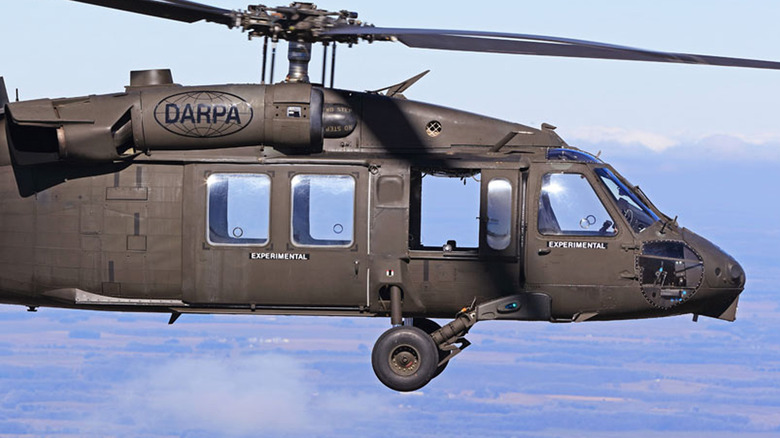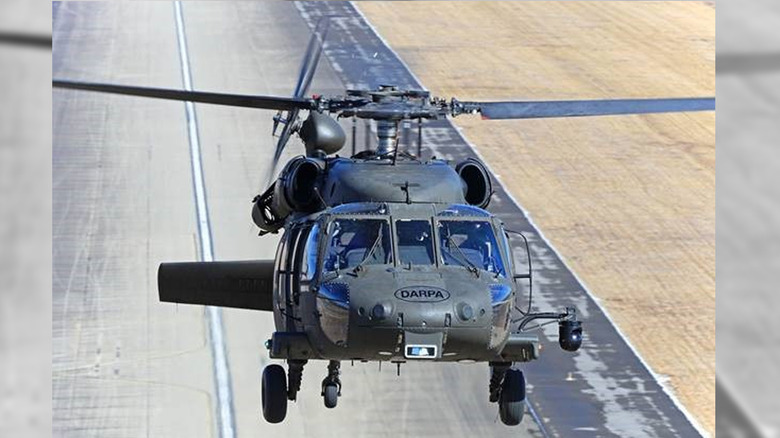This Autonomous DARPA Black Hawk Helicopter Just Flew Without A Pilot
It seems that no one at DARPA has watched the Terminator series and the rise of SkyNet, since the Defense Advanced Research Projects Agency is touting its first autonomous Black Hawk helicopter flight. SkyNet refers to the artificial intelligence (AI) in the Terminator franchise that turns on humanity and nearly wipes it out. While firmly in the realm of science fiction, many experts have warned that AI represents one of the biggest existential threats to mankind.
Tesla's Elon Musk has been one of the biggest critics, specifically citing IBM's DeepMind as the one that worries him the most. "The nature of the AI that they're building is one that crushes all humans at all games," he told Business Insider. "It's basically the plotline in 'WarGames.'"
Despite the concerns, not to mention the warnings of science fiction, military researchers are intent on incorporating AI in various weapons platforms, such as the Black Hawk helicopter.
Autonomous Black Hawk Flight
The autonomous flight occurred over Fort Campbell, Kentucky, on February 5, 2022, with a second flight on February 7. In the initial flight, the AI piloted the chopper for 30 minutes without a human on board.
The chopper was retrofitted with Sikorsky MATRIX technology that is at the heart of DARPA's Aircrew Labor In-Cockpit Automation System (ALIAS) program. DARPA's goal is to provide a way for crews to focus more on the mission at hand, leaving the craft's flight in the hands of the AI. This could be especially useful in situations where visibility is impaired, or communications are unavailable.
"With reduced workloads pilots can focus on mission management instead of the mechanics," said Stuart Young, program manager in DARPA's Tactical Technology Office. "This unique combination of autonomy software and hardware will make flying both smarter and safer."
DARPA's goal is to take the ALIAS program far beyond current autonomous flight technology. With current systems, human interaction is still required, especially in complex or unexpected situations. DARPA hopes its program will allow aircraft to be completely autonomous, requiring no interaction. This would provide unrivaled flexibility for impacted operations.
"With ALIAS, the Army will have much more operational flexibility," said Young. "This includes the ability to operate aircraft at all times of the day or night, with and without pilots, and in a variety of difficult conditions, such as contested, congested, and degraded visual environments."
Elon Musk was wrong: This isn't just the plot of WarGames — this is the opening plot of virtually every science fiction movie moving involving AI gone bad.

